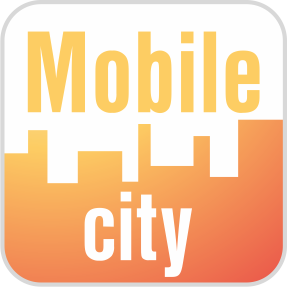
MobileCityGame
- contact:
PD Dr.-Ing. Martin Kagerbauer
Tim Wörle, M.Sc.
Lucas Schuhmacher, M.Sc. - funding:
Bundesministerium für Bildung und Forschung
- partner:
Fraunhofer-Institut für System- und Innovationsforschung ISI
Fraunhofer-Institut für Optronik, Systemtechnik und Bildauswertung IOSB
KIT - Institut für Volkswirtschaftslehre (ECON)
KIT - Institut für Fahrzeugsystemtechnik (FAST)
KIT - Institut für Verkehrswesen (IfV)
KIT - Institut für Produktentwicklung (IPEK)Stadt Karlsruhe
Takomat GmbH (TAO)
- start:
2020
- end:
2023
Problem Statement
Designing sustainable mobility and transportation systems in urban areas often poses an enormous challenge because of conflicting interests of land use, environmental protection, profitability, and comfort. The increasing use of new forms of mobility is making this task even more complex. Effects of shifts in travel behavior and political decisions are often shown by complex and time-consuming studies and simulation models. Strategic decision and planning processes based on these studies are therefore usually not able take all technical and socioeconomical factors into account nor allow for a comparison of multiple strategic options due to financial and time constraints. The participation of interested and affected residents and companies to identify relevant points of conflict and create a general consensus poses an additional challenge that is often not mastered in time to include these demands early in the planning and decision process. The issues described lead to sub-optimal solutions due to a lack of information, knowledge, and participation.
Objective
Using an interdisciplinary and cooperative approach combining gamification, citizen science and participation the project MobileCityGame aims to make the versatile social, ecological and economical effects more accessible. MobileCityGame thereby opens new possibilities for testing multiple planning alternatives and novel participation methods for diverse approaches in transport politics by showing the effects, dependencies, possibilities and boundaries of political decisions regarding urban mobility. The goal is to make cooperative design of public (transportation) spaces a reality and create more sustainable mobility solutions, raise quality of time and life in the city and evoke more political interest. The application of MobileCityGame is expected to generate impulses for the city's development strategy 2050.
Methods
Based on the travel demand and environment models a computer-based simulation game (serious game) will be developed. The specifications regarding gaming design, scenarios, possibilities of intervention for the players and scoring will be set at the beginning of the project using a participation process integrating representatives of the city of Karlsruhe, the civil society, the local companies and relevant scientific disciplines. Existing modelling tools such as mobiTopp (KIT) or ASTRA (Fraunhofer) as well as data and analysis of technological and behavioral trends will be combined to generate a dynamic model covering population, spatial development, mobility services, infrastructure, technological advances and behavior. Reducing complexity while obtaining essential correlations and dependencies of diverse strategies and actions poses the main scientific challenge of the project. The core of the simulation game is derived from this dynamic model. During the course of the project options of including additional models, supplying an expert module for professional planners or offering a version for private users will be explored. An operable model calibrated to the city of Karlsruhe will be used for interactive workshops to derive strategic scenarios for urban development until 2050.
